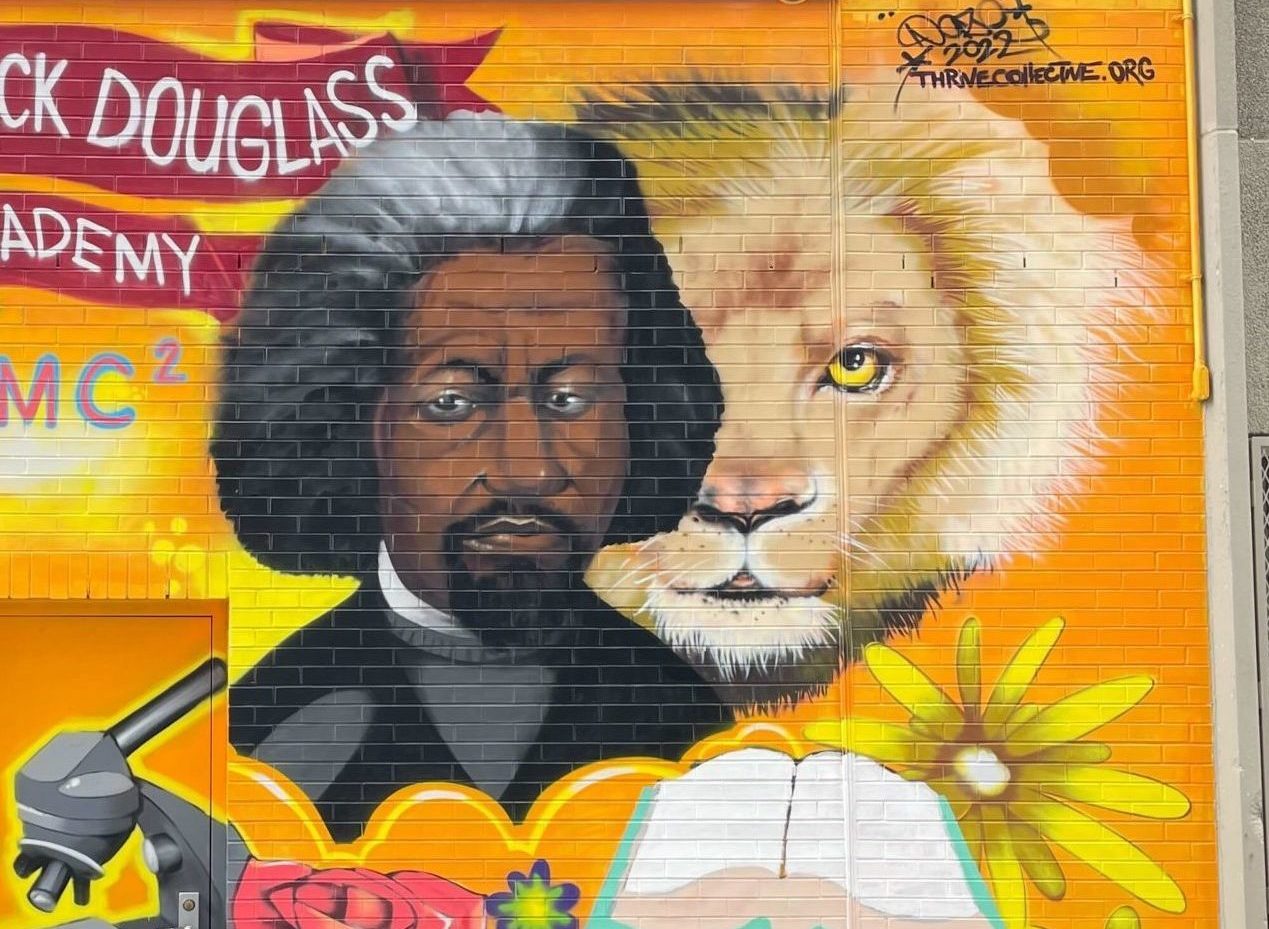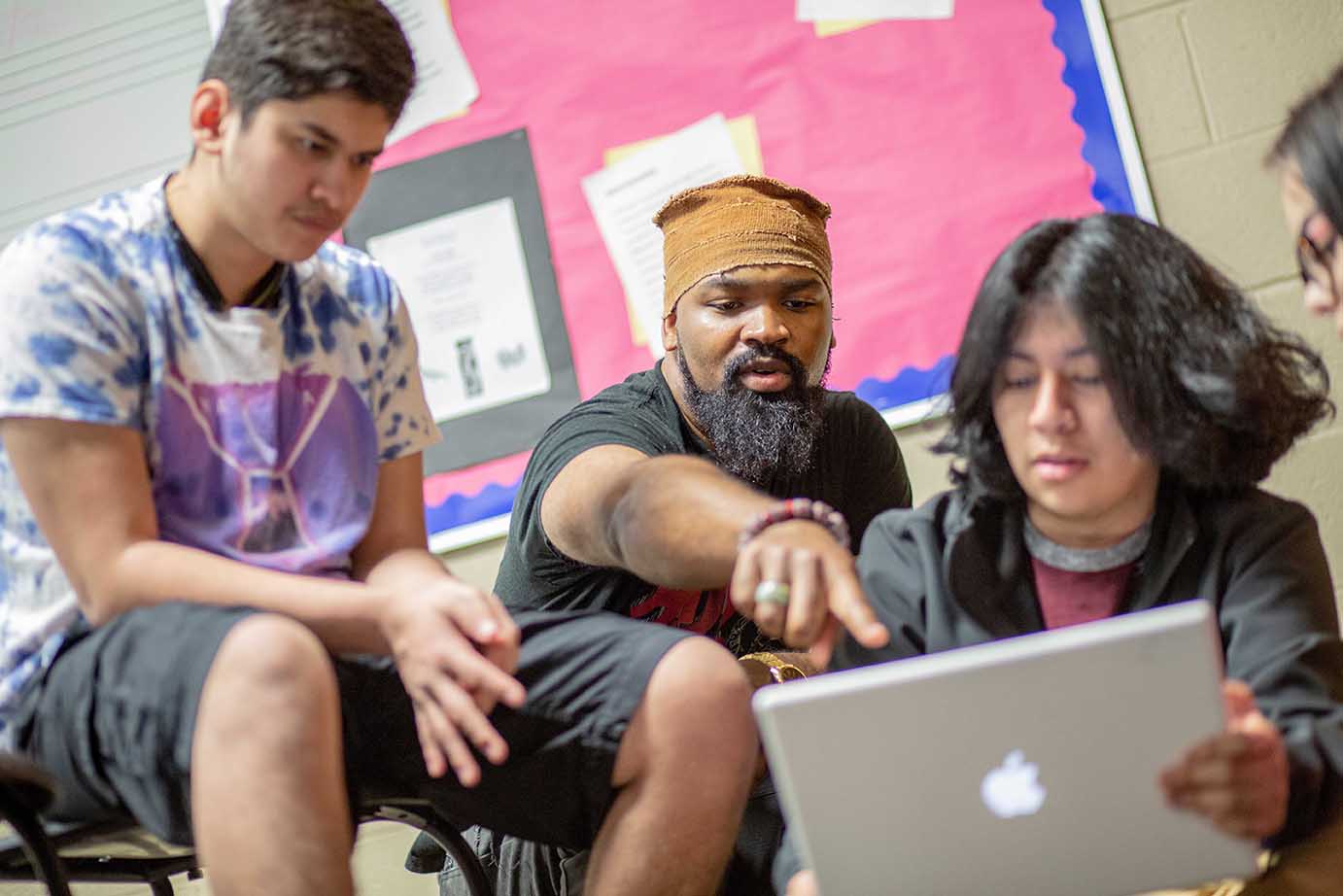Imagine a place where the echoes of powerful words and a relentless pursuit of what is fair still resonate, shaping young minds for a brighter tomorrow. This is, in a way, the spirit of Douglass Academy, an institution that stands as a living tribute to one of history's most impactful voices. We often hear about figures who change the course of things, and Frederick Douglass, a person who truly embodied that idea, offers a rich wellspring of lessons for any learning place bearing his name.
His story, which began in the most difficult circumstances, speaks volumes about the human spirit's ability to rise above. He was, you know, someone who transformed himself from a person held in bondage into a prominent activist, a thoughtful author, and a compelling public speaker. This transformation, really, is at the heart of what a place like Douglass Academy might hope to inspire in everyone who walks through its doors.
So, as we consider the name "Douglass Academy," it brings to mind not just a person, but a whole set of ideals: the importance of education, the strength of one's voice, and the unwavering belief that everyone deserves liberty and respect. It's about building a future where these principles are not just talked about, but actively lived out every day, pretty much.
- Leelee Sobieski Adam Kimmel
- The Wedding Planner Soundtrack
- True Romance Cast Members
- Sexy Mrs Santa Outfit
- Cosmopolitan Magazine Subscription Online
Table of Contents
- Who Was Frederick Douglass - A Brief Look at a Remarkable Life?
- Personal Details - Frederick Douglass
- What Does Frederick Douglass Teach Us About Learning at Douglass Academy?
- How Does Advocacy Shape the Spirit of Douglass Academy?
- Finding Your Voice - A Core Idea for Douglass Academy
- Overcoming Challenges - A Lesson for Douglass Academy Students
- Why is History So Important for Douglass Academy?
- What Can We Hope for from Douglass Academy?
Who Was Frederick Douglass - A Brief Look at a Remarkable Life?
Frederick Douglass, a very important person in American history, was an African American abolitionist, an orator who could move crowds, a newspaper publisher, and an author. He is, you know, especially well-known for his first autobiography, which was called "Narrative of the Life of Frederick Douglass." This book, in a way, gave many people a look into the true harshness of slavery.
He was, basically, a formerly enslaved person who grew to become a very prominent activist, a writer, and a public speaker. His journey from being held captive to becoming a powerful voice for freedom is, quite frankly, an incredible testament to his spirit. He became a true leader in the movement to end slavery, a cause that sought to free millions of people who were held in bondage.
Born into slavery around 1817, near Easton, Maryland, Frederick Douglass became, arguably, the most influential African American of the nineteenth century. He achieved this by turning his own experiences into a powerful story that showed the deep wrongs of slavery. His life, in some respects, became a living example of the struggle for freedom and fairness in America.
In August of 1841, he attended an antislavery meeting in Nantucket. It was there, you know, that someone had the good fortune to meet him, Frederick Douglass, the writer of such powerful words. His brilliant ideas and brave actions made a huge difference. He became one of the most famous thinkers of his time, even advising important people.
Personal Details - Frederick Douglass
| Born | Circa 1817-1818, Talbot County, Maryland |
| Mother | An enslaved Black woman |
| Known For | Abolitionist leader, orator, author ("Narrative of the Life of Frederick Douglass"), newspaper publisher |
| Impact | Powerful voice for freedom and equality, influential African American of the 19th century, advised leaders |
| Key Event | Attended antislavery convention in Nantucket, August 1841 |
What Does Frederick Douglass Teach Us About Learning at Douglass Academy?
Frederick Douglass’s life truly shows us how important learning is, even when things are very, very difficult. He was born into slavery, a system that tried to keep people from gaining knowledge. Yet, he found ways to learn to read and write, and this ability, in a way, set him on a path to becoming a powerful speaker and writer. For a place like Douglass Academy, this means putting a lot of value on every student's chance to learn and grow.
His story tells us that true education isn't just about facts; it's about gaining the tools to understand the world and to express yourself. At Douglass Academy, this could mean encouraging students to read widely, to think deeply about what they learn, and to put their thoughts into words, whether through writing or speaking. It's about giving them the skills to interpret things, to question, and to make sense of information, you know.
The idea of literacy, of being able to read and write, was a key to Frederick Douglass's own freedom. It gave him a way to share his experiences and to argue for what was right. So, a school named after him, Douglass Academy, would naturally put a strong focus on reading comprehension, clear writing, and effective communication. It’s about helping students find their own voices and use them well, pretty much.
Learning, for Douglass, was a way to break free from limitations. It was a tool for change. This idea, in some respects, would be a guiding light for Douglass Academy, reminding everyone that education is a way to open up possibilities and to make a positive mark on the world. It’s about more than just textbooks; it’s about personal growth and making a difference, actually.
How Does Advocacy Shape the Spirit of Douglass Academy?
Frederick Douglass was not just someone who had been enslaved; he became a powerful voice for fairness and equal treatment in American history. He became a leader in the movement to end slavery, which was a huge effort to make things right for millions of people. This part of his life, you know, speaks directly to how Douglass Academy might approach its mission.
The spirit of advocacy, of speaking up for those who need it, would be a core part of the Douglass Academy experience. It's about teaching students to look at the world around them, to see unfairness, and to feel a sense of responsibility to act. This doesn't mean just talking about problems, but also thinking about solutions and how to bring about good changes, more or less.
His unwavering commitment to justice, even when it was unpopular or dangerous, shows us the strength needed to stand for what is right. Douglass Academy, therefore, could aim to instill this kind of moral courage in its students. It's about helping them understand that their voices have weight and that they can use them to help others and to make their communities better places, very much.
Think about the millions of African Americans who were enslaved in 1852 – roughly 14% of the total population of the United States. That was the state of the nation when Frederick Douglass spoke out so bravely. This historical context, in a way, highlights the urgency and importance of his work. Douglass Academy would, basically, encourage students to learn from such historical struggles and to apply those lessons to today’s challenges, you know.
Finding Your Voice - A Core Idea for Douglass Academy
Frederick Douglass was an orator, a person known for his ability to speak publicly with great skill. His words and speeches, we are told, had a profound effect. This ability to communicate, to share ideas clearly and persuasively, is a very important part of his legacy. So, how might this influence a place like Douglass Academy?
At Douglass Academy, helping students find and strengthen their own voices would be a central goal. This means encouraging them to express their thoughts, to participate in discussions, and to present their ideas with confidence. It’s about creating a setting where every student feels comfortable speaking up and knows their contributions are valued, actually.
Whether through writing essays, participating in debates, or giving presentations, students at Douglass Academy could learn the art of effective communication. Just as Douglass used his words to challenge injustice, students could learn to use their words to share their perspectives, to solve problems, and to make a positive impact. It's about developing the skills to articulate one's beliefs, pretty much.
His journey from silence to powerful public speaking is a reminder that every voice has potential. Douglass Academy, in some respects, would be a place where that potential is nurtured, where students are given the tools and the confidence to speak their truths. It’s about empowering them to be heard, to be understood, and to contribute to important conversations, you know.
Overcoming Challenges - A Lesson for Douglass Academy Students
Frederick Douglass was born into slavery, a system that presented immense obstacles from the very beginning of his life. Yet, he rose above these circumstances to become one of the most famous thinkers of his time. His life, truly, is a story of great resilience and determination. What can this teach the students at Douglass Academy?
The story of Frederick Douglass shows us that even when things seem impossible, there is always a way forward if you have courage and a strong will. Douglass Academy could use his life as an example to inspire students to face their own difficulties with persistence. It’s about teaching them that setbacks are not the end, but rather opportunities to learn and grow, you know.
- Harris Nursery Tyler Tx
- Jenna Bush Queso Recipe
- Lisa Walter Nude
- Cary Elwes Wife
- Different Ways To Spell Jacqueline


